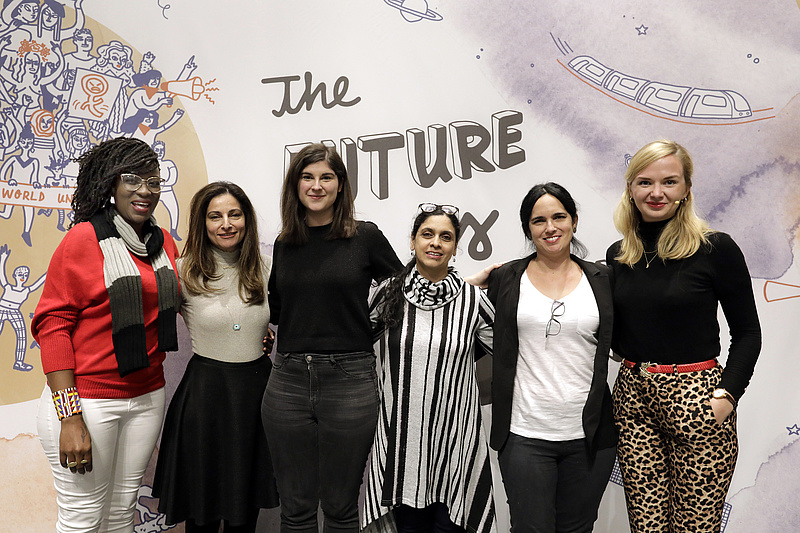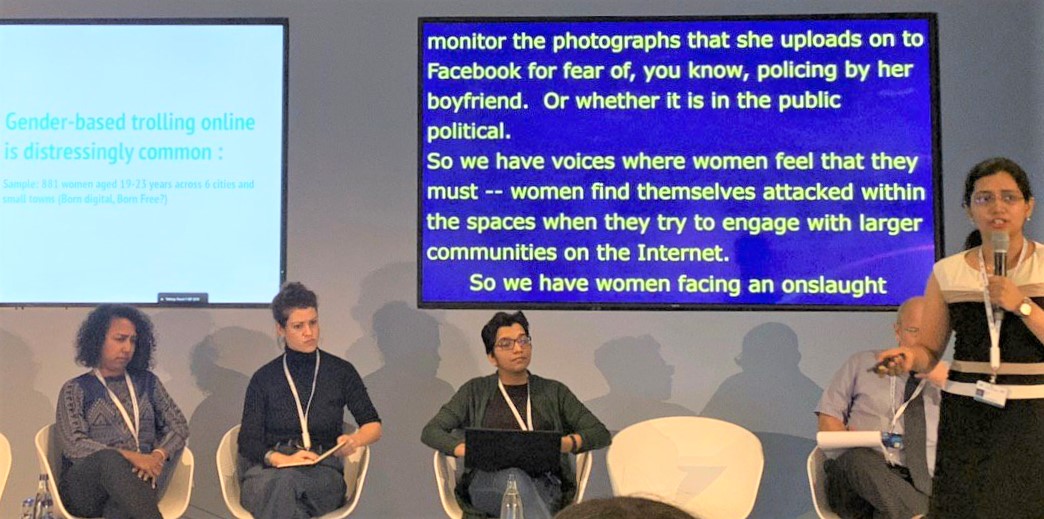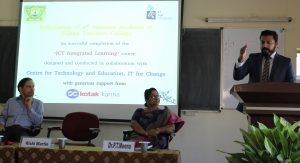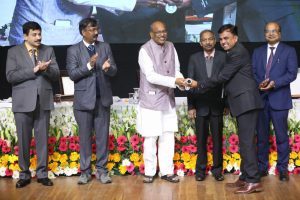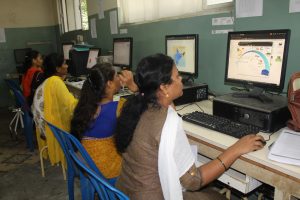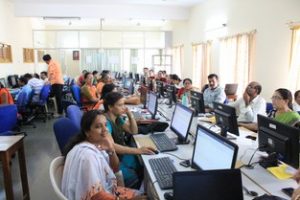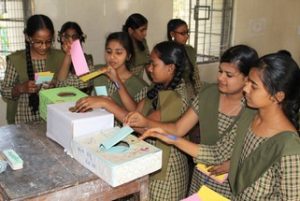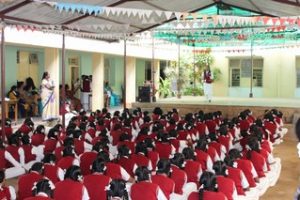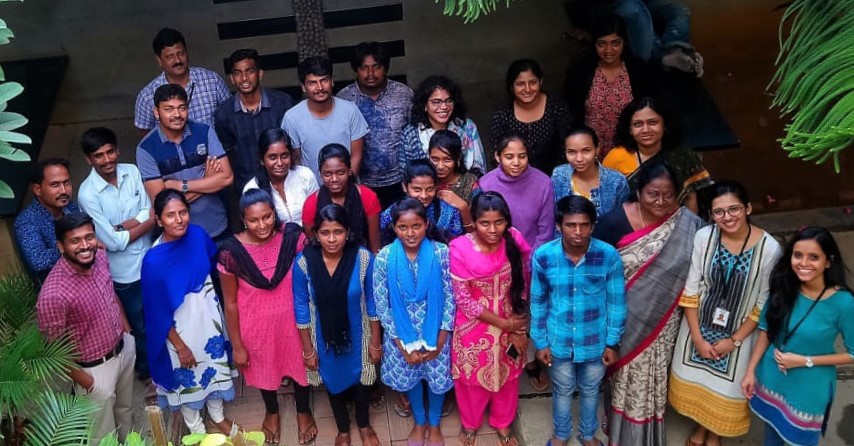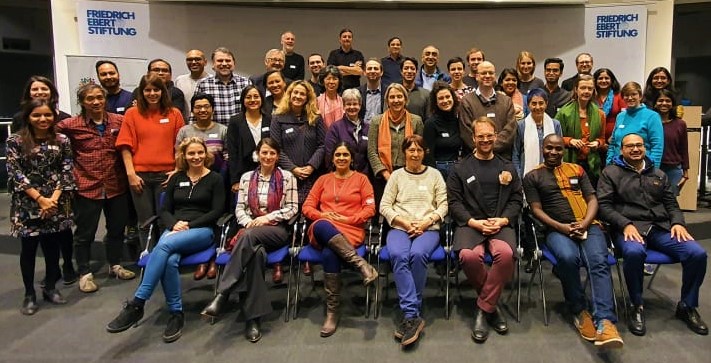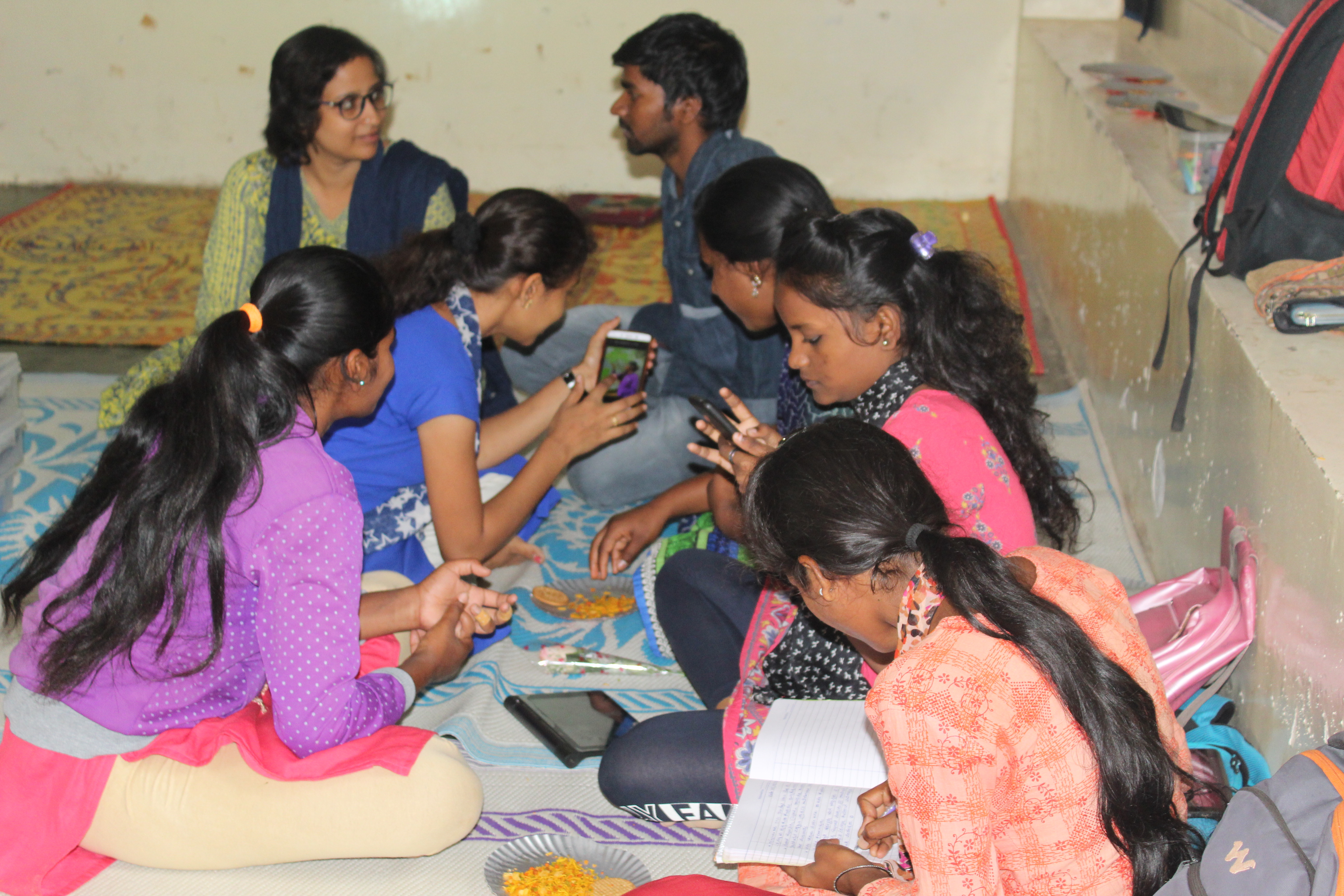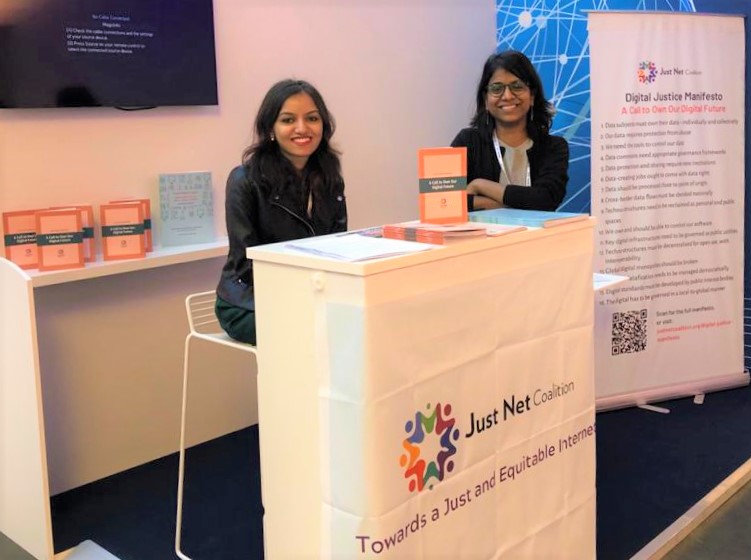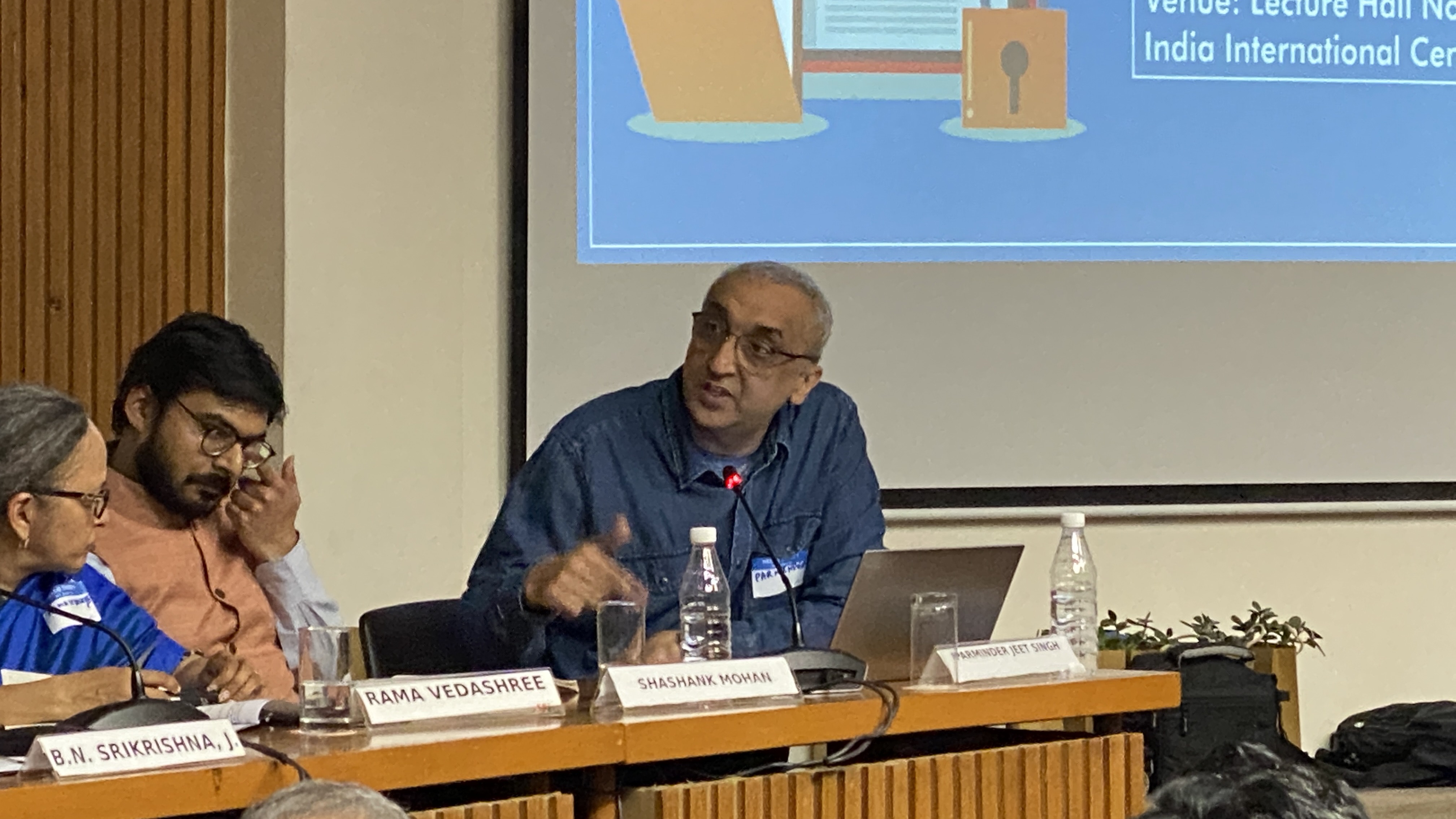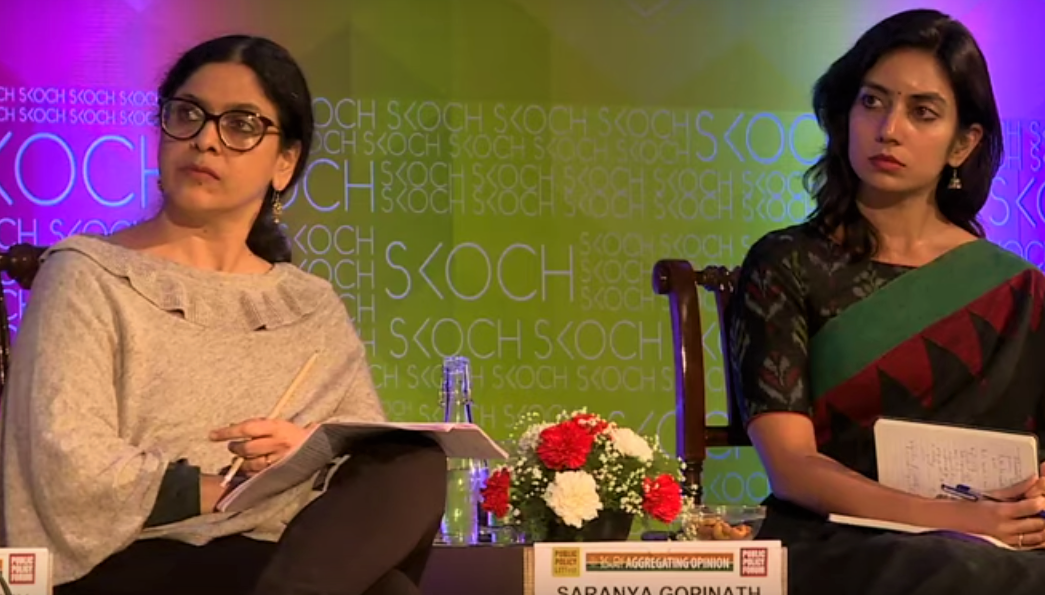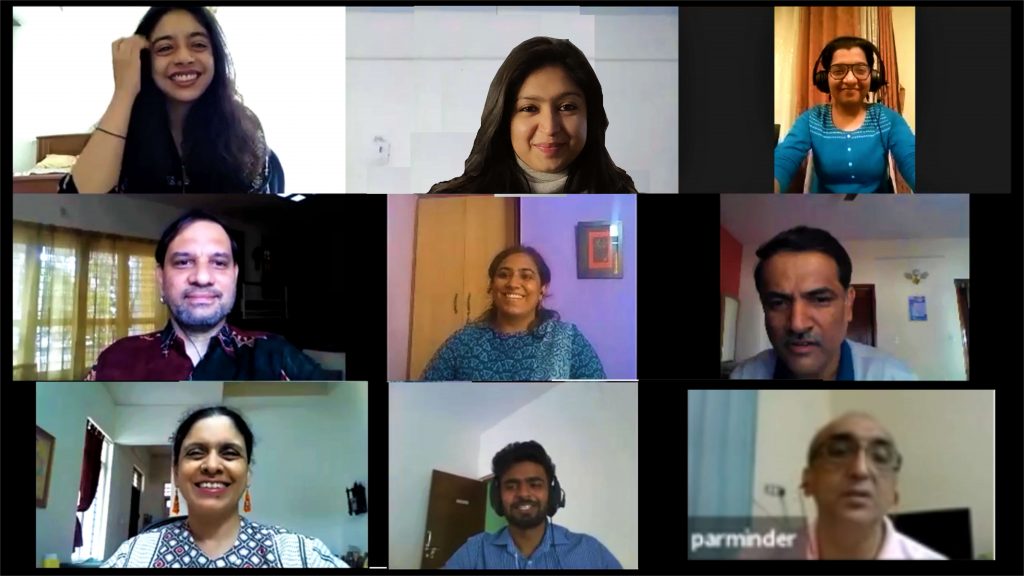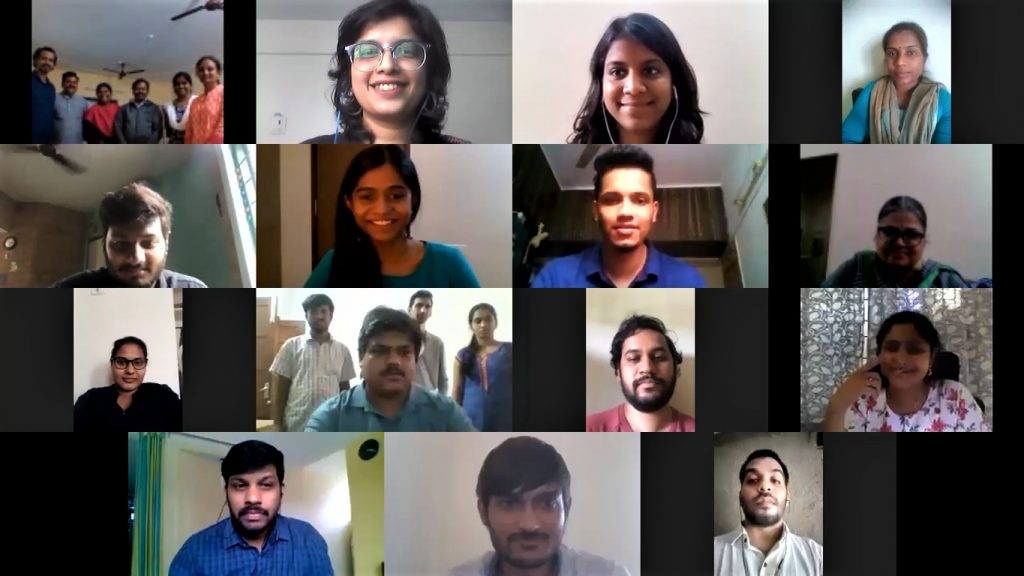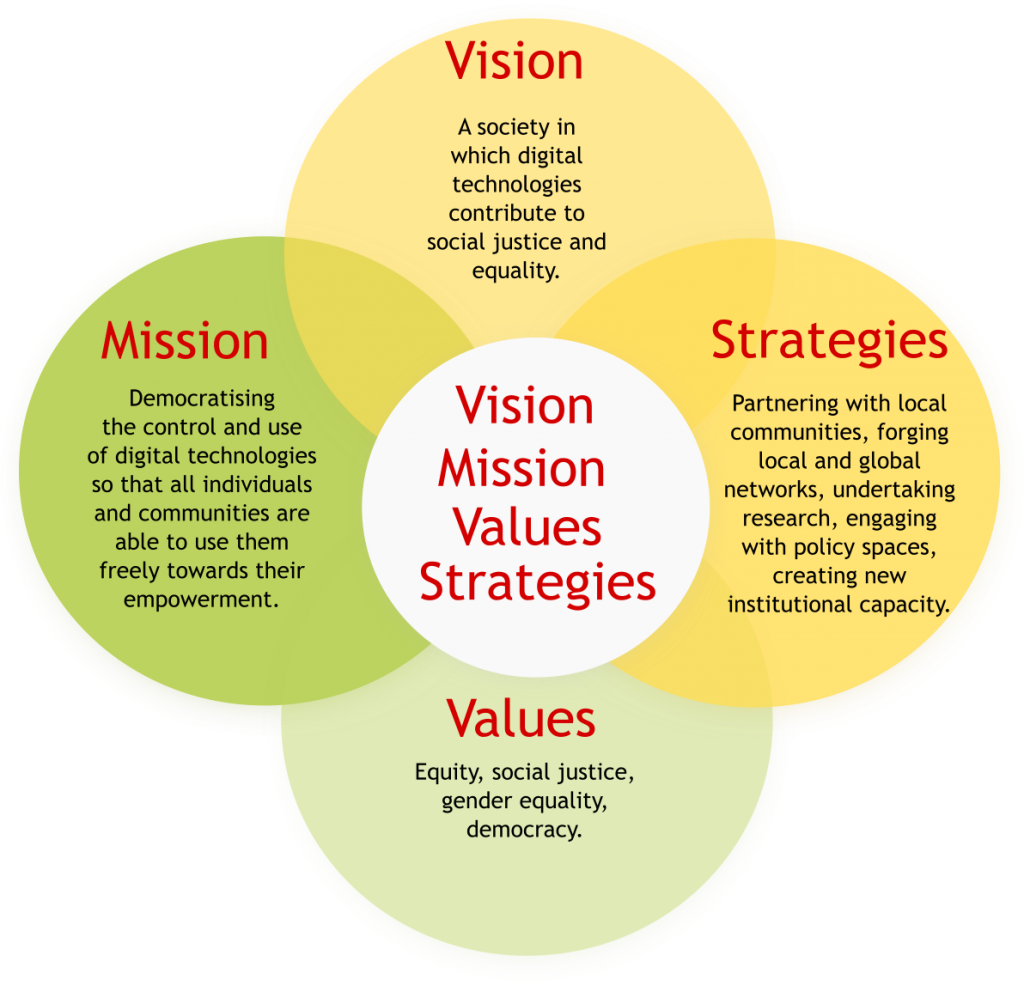Prakriye Field Centre
Prakriye, our field resource centre, deploys the creative potential of information and communication technologies in furthering the socio-political empowerment of marginalized rural women and adolescent girls, and promoting gender-responsive local governance. In its efforts to evolve a radically new development praxis that brings power to the peripheries, the center engages with rural women’s collectives, adolescent girls, male community leaders, local government institutions, and community-based organizations in over 60 villages of Mysuru district, India.
Namma Maathu, Namma Jaaga (Information centres)
The seven ICT-enabled information centres (Namma Mahiti Kendras) that Prakriye runs in partnership with local women’s collectives in Hunsur and HD Kote blocks of the Mysuru district continue to further a gender-responsive local governance culture at the grassroots in 60 project villages. Young women from the local community are trained and mentored by the Prakriye team to act as infomediaries (sakhis) and manage these information centres in consultation with the members of women’s collectives.
In the year 2019-20, our infomediaries reached out to 12,000 villagers to share information about welfare schemes and subsidies, and processed 503 entitlement claims. Overall, 325 women were supported in accessing social security and achieving some degree of financial independence contributing to status gains at the household level. In partnership with the Department of Women and Child Welfare, Government of Karnataka, we also conducted sessions on diverse issues including nutrition for pregnant women and adolescent girls, awareness about the Domestic Violence Act, benefits of women’s collectives, and loan facilities for women-led enterprises. We were also able to co-organize four livelihood training sessions for women with the State Rural Livelihood Mission’s local skill training centres.
Entitlement Claims Processed in 2019-20 | |
| Agriculture and allied departmental schemes | 75 |
| Government ID cards | 104 |
| Pension schemes | 91 |
| Welfare schemes | 98 |
| Subsidy | 37 |
| Land and other ownership documents | 98 |
Namma Jaaga help desks
We have strengthened our crisis support services and community mobilization efforts to address gender-based violence as part of our program, Namma Maathu, Namma Jaaga (Our Discourse, Our Space), which is supported by the EdelGive Foundation.
The 37 Namma Jaaga help desks set up in 25 villages of HD Kote Block as part of this program provide a first point of crisis support for women and girls facing various forms of gender-based violence. In 2019-20, these help desks addressed 988 cases of various forms of gender-based violence, including emotional, physical, and sexual abuse by spouses or family members, desertion and abandonment, denial of property rights, harassment for dowry, and harassment experienced by adolescent girls. The work of the gender help desks was aided by the fact that women in these villages have become more comfortable in seeking help from them over time.
With support from Samvada, a Bengaluru-based organization with extensive experience in feminist counseling trainings for grassroots workers, we conducted advanced sessions for our team of 51 para-counselors to strengthen their skill sets. We also provided each para-counselor with a tablet, pre-loaded with audio and video learning material, which they can consult for case work. Adept at strategizing and addressing issues on the ground, para-counselors have come into their own now and require minimal hand-holding from our team.
Learning dialogues with women’s collectives, adolescent girls, and boys
In addition to crisis support, our para-counselors are also engaged in furthering the empowerment journeys of local women’s collectives (sanghas) through monthly video-based learning dialogues on women’s rights, gender justice, and promoting women’s participation in local governance. These sessions have targeted 1,200 women across 60 villages. The discussions have focused on motivating women to participate in local governance, creating a gender equal environment at home, negotiating property rights, and accessing state entitlements.
Motivated by the learning dialogues, around 20 women from Manuganally, Kalihundy, Adally, and Belathur villages led a campaign demanding new bus routes for their school-going children who could not attend classes due to lack of public transport. Women from these villages met with the panchayat and depot manager of Karnataka State Road Transport Corporation (KSRTC), and later, the local Member of Legislative Assembly to resolve the issue. The campaign led to the introduction of new bus routes in six villages in the area.
Our field center team also held regular learning dialogues on unpacking social constructions of gender with 526 adolescent girls and 345 adolescent boys across six schools in two villages.
Promoting critical conversations on gender at the village level
In seven panchayats, our team worked with and urged elected male representatives, panchayat leaders, community leaders, and male residents to address concerns raised by women and girls on the lack of safety, hampered mobility, violence, and discrimination in their communities. We interacted with 138 male leaders through this track, who now actively participate in gram sabhas (village assemblies) as well as in interventions by para-counselors and/or the village communities to address cases of gender-based violence.
Panchayats addressed some of these issues in village assemblies organized exclusively for women (mahila gram sabhas) and children (makkala gram sabhas). The gram sabhas were also successful in prompting action from panchayats on long-standing issues such as releasing subsidies for housing and sanitation schemes.
Alleviating the financial burden on women
The Prakriye team collaborated with the Naganally Panchayat in Dasanapura village to conduct a study on financial distress and exploitative lending practices faced by sangha women. The study revealed that the average monthly income of households almost equaled their average monthly loan repayments. When we shared these results with elected representatives of the panchayat, members of the Social Justice Committee were taken aback by the excessive financial burden that women had to shoulder. They promised to pay attention to the debt crisis in the village, and discourage women from borrowing beyond their repayment ability.
Community events by members of women’s collectives
In 2019-20, the Prakriye team initiated a ‘Gender Score Card’ exercise with the sangha women to better assess their position in our intervention areas. A survey-based assessment of perceptions of women’s decision-making capacity within the household – control over finances, children’s education, sale of agricultural produce, etc. – triggered critical dialogue and debate within the women’s collectives. The exercise helped sangha women realize that husbands and other male members of the family were taking all the major decisions regarding agricultural produce, access to the market, procurement of daily necessities, participation in the panchayat and gram sabha level meetings while women put in all the labor.
With an aim to help women reclaim their right to public spaces, the Prakriye team organized sports days for women in several villages in the HD Kote block. Approximately 350 women and adolescent girls from 18 villages participated in a range of games and competitions. The participants were ecstatic about breaking prevailing norms of sport being a ‘male-only’ domain. Their reflections were captured as digital stories and shared with women from other villages.
To promote ICT-based gender sensitization, we organized a Gender and Technology Fest on the theme of Participation for Equality in four schools with video screenings, digital literacy trainings, and a selfie corner. 259 adolescent girls and 197 adolescent boys participated in the event.
Media strategies to effect progressive gender discourse
The Prakriye team continued its efforts to creatively utilize mobile-based IVR technologies and participatory media strategies to break the silence around the naturalization of gender-based violence and women’s subordination.
In 2019-20, we broadcast 45 episodes of an audio fiction series, Anjali Akka (Sister Anjali) to 737 women and 510 men subscribers. The series is about the eponymous Anjali Akka (elder sister), a young woman from a village in the Mysuru district, who works to further the gender justice agenda in her community. The choice of using a fictional format to discuss pertinent issues of female education, women’s participation in public forums, etc. helped initiate difficult conversations with community members. In addition to a serial/story format, we broadcast informational voice messages to generate interest among new listeners.
|
| An IVR message about the importance of girls’ education from our audio fiction series Anjali Akka. |
With support from our intermediaries, we organized 448 film screenings for 9,000 viewers. These video resources included films made by the Prakriye team. We produced five short films in 2019-20, including Power Game, which depicted prevailing gender-based power structures and prejudices in society, and Gender Roles, which showcased interviews with men who support their wives’ professional endeavors. Some films captured the children’s village assemblies (makkala gram sabha), while others traced the journeys of our sakhis.
Covid-19 relief
As the Covid-19 pandemic swept across India, the Prakriye team quickly mobilized to raise funds for relief services. Community-level discussions were held in 60 villages to assess the needs of the community and identify beneficiaries who required urgent relief. We shortlisted 1,500 beneficiaries for immediate support, prioritizing poor families without ration cards. Most beneficiaries were single women and older women without family support.
Impact
The setting up of 37 Namma Jaaga desks at accessible locations has benefited many women and girls. The help desks are doing well, acting as a safe space where women can gather and discuss issues and provide psycho-social assistance to victims of gender-based violence. More and more women have started visiting these desks to share their problems and seek solutions.
Para-counselors who have been through Parkriye’s intensive capacity-building exercises are recognized and sought after as local experts and resource persons. One of our para-counselors, Jyothi, from Tumbhasoge village, received an award from the Department of Women and Child Development, Government of Karnataka, recognizing her proactive work supporting women and girl victims of gender-based violence. Due to their digital proficiency, three para-counselors from the cadre were also invited by the Women and Child Development department to train other Anganwadi workers in the district to use a data collection app to document their work.
Our work on digital capacity building has been recognized by other organizations. Jan Sahas, an NGO based in Madhya Pradesh and working across nine states, visited the Prakriye team in Mysuru to understand how ICTs can be used in their development work. We oriented the visiting team to various digital strategies that we employ in our work and strategized with the Jan Sahas team on how they could use these tools in their interventions.
Plans for 2020-21
Prakriye’s funding from the EdelGive Foundation was successfully renewed this year. In 2020-21, we will work to deepen our intervention on prevention and redress of gender-based violence. We will strengthen our Namma Jaaga help desks, enhance the capacities of our team of para-counselors, and undertake more media-based learning dialogues in the HD Kote block while extending the intervention to villages from the Hunsur block.
Covid-related restrictions and social distancing norms have restricted our access to the operational area. We are in the process of addressing and reorienting our work plans to this challenge in the short and medium term.

